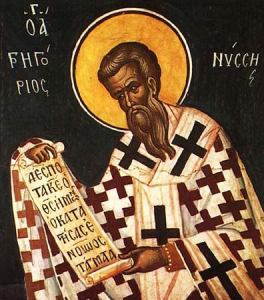 On Psalm 23 [24].
On Psalm 23 [24].
The Gospel describes the Lord’s life upon earth and his return to heaven.
But the sublime prophet David, as though unencumbered by the weight of his body, rose above himself to mingle with the heavenly powers and record for us their words as they accompanied the Master when he came down from heaven.
Ordering the angels on earth entrusted with the care of human life to raise the gates, they cried: Lift up your gates, you princes; be lifted up you everlasting doors. Let the King of glory enter.
But because wherever he is, he who contains all things in himself makes himself like those who receive him, not only becoming a man among men, but also when among angels conforming his nature to theirs, the gatekeepers asked: Who is this King of glory?
He is the strong one, they were told, mighty in battle, the one who is to grapple with and overthrow the captor of the human race who has the power of death. When this last enemy has been destroyed, he will restore us to freedom and peace.
Now the mystery of Christ’s death is fulfilled, victory is won, and the Cross, the sign of triumph, is raised on high. He who gives us the noble gifts of life and a kingdom has ascended into heaven, leading captivity captive.
Therefore the same command is repeated. Once more the gates of heaven must open for him. Our guardian angels, who have now become his escorts, order them to be flung wide so that he may enter and regain his former glory.
But he is not recognized in the soiled garments of our life, in clothes reddened by the winepress of human sin. Again the escorting angels are asked: Who is this King of glory?
The answer is no longer, The strong one, mighty in battle, but, The lord of hosts, he who has gained power over the whole universe, who has recapitulated all things in himself who is above all things, who has restored all creation to its former state: He is the King of glory.
You see how much David has added to our joy in this feast and contributed to the gladness of the Church.
Therefore as far as we can let us imitate the prophet by our love for God, by gentleness and by patience with those who hate us. Let the prophet’s teaching help us to live in a way pleasing to God in Christ Jesus our Lord, to whom be glory forever and ever. Amen.
Gregory of Nyssa (c 335 – after 394): On the Ascension (Jaeger 9.1.323-327); ); from the Monastic Office of Vigils, Tuesday of the Sixth Week in Eastertide, Year 2.








